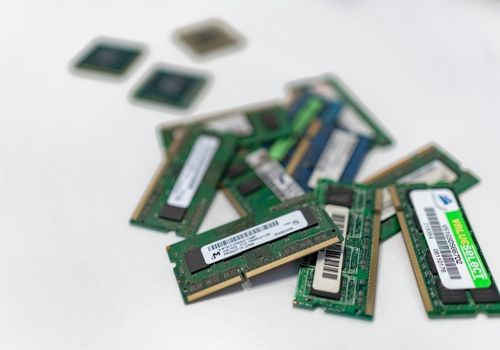
If you're wondering whether a kilobyte (KB) is bigger than a megabyte (MB), it's not. One megabyte is larger than one kilobyte since a single MB is made up of 1024 KB.
My young cousin has been getting into computers more and more, and he asked me about computer storage units. He wanted to know whether MB is bigger than KB, or the other way around. Fortunately, I was able to teach him everything he needed to know.
If the question "is KB bigger than MB" just popped into your mind, you'll find the answers to that question here. I've put this guide together to break down everything you need to know. Let's get right into it.
Contents
When it comes to computer data storage and file sizes, a kilobyte (KB) and megabyte (MB) are two of the most common units you'll see.
To answer your question, a kilobyte is not bigger than a megabyte. Although they are right next to each other in the hierarchy of storage units, you'll find the MB bigger than KB by a factor of exactly 1024.
A single megabyte is made up of 1024 kilobytes.
So, in practical applications, if a website asks you to upload a file with a limit of 500 kilobytes and yours is 2 megabytes, your file needs to be smaller and not bigger.

We've discussed megabytes and kilobytes, but this is just one part of understanding the different units used to measure file sizes and digital information.
There are many other units of measurement used. We'll get into them, starting from the smallest unit, the bit, and going up to the petabyte.
Keep in mind that there are units above the petabyte, but it is very unlikely that knowing about them will prove practical in any way.
The bit is the smallest unit of information used to represent storage.
To understand this unit symbol better, know that at the very foundation of digital information are binary digits - either a 0 or a 1.
A bit is a binary digit because it can either be a 0 or 1, and nothing else. It is a varying combination of zeroes and ones that make up all of our data.
The unit, byte (B), is the next up the line, and one byte is made up of eight bits. Each of these eight bits can either be in an on or off position, that is, 0 or 1.
This means that there are 256 different possible forms that a single byte can come in.
If you're active on the internet, you might be using anywhere from 700 million bytes to as many as one billion bytes in a day! However, you probably won't come across files measured in the unit byte, because it is too small.
KB stands for kilobyte, and a single kilobyte is made up of 1,024 bytes.
The kilobyte is the smallest unit that you're likely to stumble across when it comes to actual files on your PC. For instance, Microsoft Word documents and small images will be represented in KB.
MB stands for megabyte, and one MB is comprised of 1024 kilobytes.
Megabytes are one of the more common units that you'll have to deal with. A lot of programs, high-quality images, music files, and standard-definition videos are measured in megabytes. Usually, data transfer speeds are also mentioned in MB per second.
The gigabyte (GB) is likely the biggest unit of information that you will handle for single files on your PC. One gigabyte is made up of 1024 megabytes.
Large applications, games, and high-definition videos are measured in gigabytes.
One terabyte (TB) is made of 1024 gigabytes.
You may not come across a single file measured in terabytes. This is usually reserved for collections of files. However, you'll find storage devices with capacities measured in terabytes.
A petabyte (PB) is made up of 1024 terabytes and is the largest storage unit you'll hear mentioned in casual conversation. As consumers, we're far from having any personal experience with petabytes.
Petabytes are usually reserved to measure the capacity of commercial storage centers or servers.

Your computer understands data in binary, which is base 2, so everything has to be in multiples of 2. This is why one MB is 1024 kilobytes. 1024 is 2^10.
However, manufacturers of hard drives and solid-state drives stick to base 10, which is why you might hear that one kilobyte is one thousand bytes and not 1024 bytes.
If you check how much space a new 500 GB drive has, it would be 465 GB. Since your computer reads the sizes in base 2, the 500,000 MB from the manufacturer only comes to about 465,000, thanks to how the PC does the math.
You wanted to know which was bigger: MB or KB. Well, the KB is smaller than the MB since one MB is actually made up of 1024 kilobytes.
However, beyond MB and KB, there is a lot more to know about memory in computers. The bit is the tiniest unit, but one byte is the smallest you'll find. Common file units range from KB to MB, and then the gigabyte and terabyte.
We hope this article answered your questions about KB, MB, and other storage units. Take a look at our related articles to learn more.
